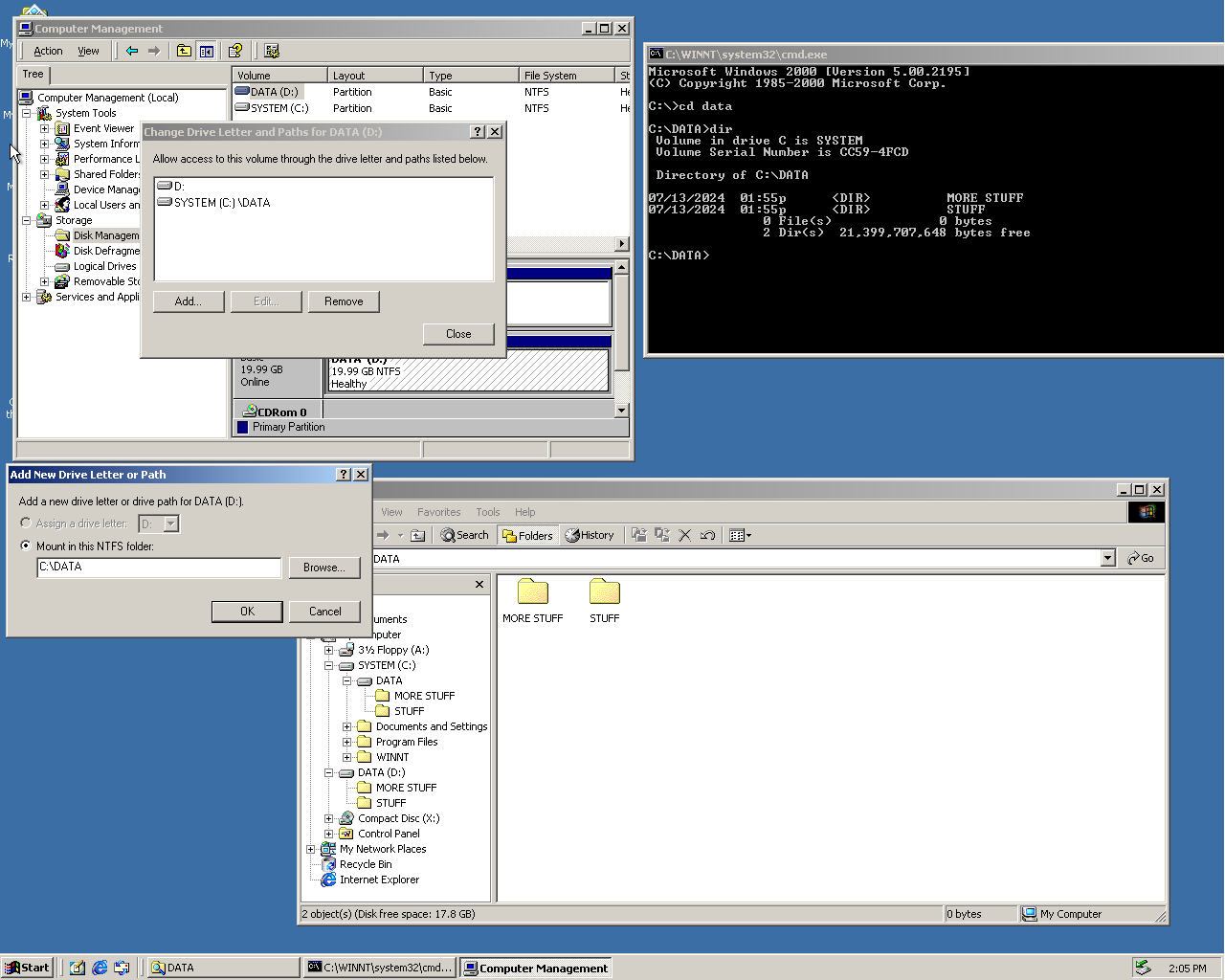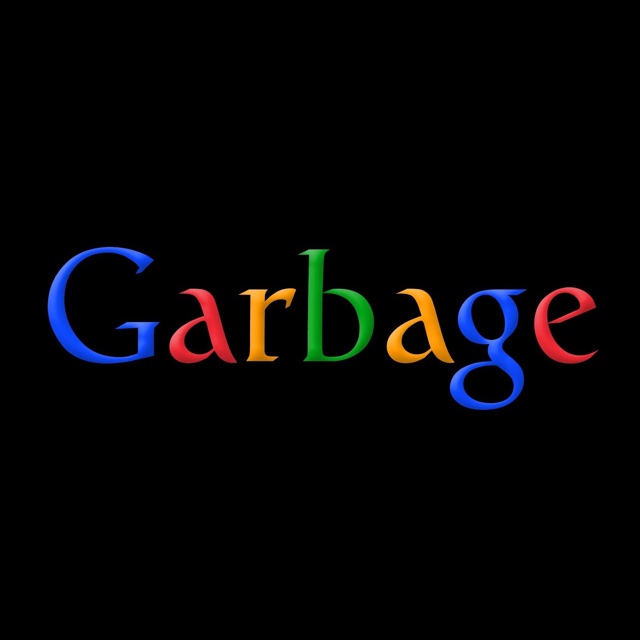When is an ad an advertisement and not a recommendation? Microsoft clearly likes to use the term recommendation for what others may see as an advertisement.
There are recommendations in the Start menu, Settings app, Lock screen, File Explorer, Get Help app, and other areas of the operating system already. These are often not that useful. App recommendations in the Start menu are limited to Microsoft Store apps.
Now, Microsoft is testing recommendations in the Microsoft Store app. If you never use the app, you won’t be exposed to these. If you do, you may notice recommendations popping up when you try to use the built-in search.
First spotted by phantomofearth on X, two or three recommendations are shown whenever search is activated in the official Microsoft Store app.
I’ve recently made the switch over to LinuxMint and I was shocked. Installing a popular Linux Distro is EASIER than installing Windows 10/11 at this point. Seriously. The Linux installer is super noob friendly, very quick and straight to the point, it doesn’t need you to create an online account and you don’t need be wary of accidentally giving any corporation the rights to steal your data.
And all the software I use (Steam, Discord, Spotify, Firefox, Thunderbird, …) were all downloadable from the GUI Installer and worked right away OUT OF THE BOX. No fiddling in any Terminal was required.
Seriously, it’s easier than installing Windows at this point.
Installing Linux has never been particularly difficult, not in the last 15 or even 20 years anyway. I’ve always found it easier and more straightforward than the contemporary Windows installation process.
The challenging part is wrapping your head around the Linux/Unix way of doing things when things can’t be done through the GUI with just a few clicks.
and even the challenging part doesn’t really have to be that hard and can quickly be figured out. either via a package installer or it can be as simple as git clone <insert git repo> then makepkg -si
I mean with Arch and AUR it’s that easy. worse comes to worse if it’s not in Octopi or AUR then download the exe, wrap it in wine, and that should do it. I’ve been using Linux for almost a month now and I think the only thing I just couldn’t get working was some Mod package for a game and that’s only cause I’m lazy and gave up on it but it would work if I was dedicated to get it working.
I think about this sometimes. What stuff can’t you do in a Linux GUI that an average person would be able to do in Windows? For the sake the simplicity, lets limit the GUI to Cinnamon, Plasma, or Gnome.
Obviously, there are obscure GUIs out there, but in the main ones, I think just about everything can be done without CLI.
Until you have problems with hardware or something, generally I’d agree.
I’d amend that to say I wouldn’t count “regedit” or group policy muck to be “easy” by virtue of having “a gui”. Those are areas where technically there’s GUI that might be CLI-only under Linux, but hardly friendly enough to make a difference.
deleted by creator
Amen, I consider myself pretty savvy with Windows under the hood. Most of the time when my users see me ripping around in the registry to fix something they think I’m some crazy skilled hacker\programmer lol. It’s funny.
I know the filesystem is simple to Linux users, but the semantic form of physical drives getting a letter always made more sense to me.
I have three drives in my computer. So they’re labeled C:, D:, and E:. You can’t place a file on “The Computer” - it’s stored on some particular drive. If I install a game on the E drive, and then later somehow remove that drive and bring it somewhere else, that game remains on that drive, even if it’s no longer E.
On Linux, as best I understand it, if I have three drives, two of them are at /dev/hdd0 and hdd1. But they’re not actually there, they’re accessed at /media/hdd0 after mounting them (or at least, that’s the convention, and if it’s someone else’s computer, good luck). Then you either begin every game installation path with that annoying prefix, or you start configuring a dozen symlinks. If you place an item in /home/documents/notporn, then who knows which drive it’s on because you don’t know what symlinks someone set up to make that folder.
Windows does have symlinks too now, which has been nice for hacking a few installation directories, but I appreciate that it’s an exception, and everything else follows relatively logical division of space, rather than this hybrid system where the filesystem isn’t just stored files but also devices, programming concepts, and more.
I know the filesystem is simple to Linux users, but the semantic form of physical drives getting a letter always made more sense to me.
That’s one of the things that semi-experienced Windows users need to wrap their head around, but I strongly disagree that drive letters are somehow inferior to a hierarchical file system structure. I mean, the A:, B:, C: … convention was originally just intended for the first IBM PC with 1 or 2 floppy drives. It was never intended to support complex storage configurations, whereas the hierarchical file system was designed for Unix systems that had to handle multiple magnetic drives from the start. It is a much more flexible system to organize your file storage.
On Linux, as best I understand it, if I have three drives, two of them are at /dev/hdd0 and hdd1. But they’re not actually there.
That’s because there is a difference between a block device and a mounted file system. Windows just obscures that difference from you with its archaic drive mapping system.
All your block devices and partitions on your block devices will be in
/devwith a meaningful name. You can list them with thelsblkcommand. If a partition contains a file system that Linux knows how to use, you can mount it anywhere you like.they’re accessed at /media/hdd0 after mounting them
No that’s not “convention” at all. Some desktop environments may decide to mount undefined drives there, but there really is no convention, ultimately you mount it where you want it to be mounted.
If you place an item in /home/documents/notporn, then who knows which drive it’s on because you don’t know what symlinks someone set up to make that folder.
If your unsure,
df /home/documents/notpornshould tell you exactly what drive it’s on, but ultimately it’s up to you to know how you’ve organized your storage.BTW I’ve said this before, but Linux is probably harder for users who know Windows just well enough to be dangerous than it is for relative beginners, because there are so many concepts and things they take for granted that they have to unlearn.
As an interesting fact, windows totally supports mounting positions to folders and as far as I recall it’s been able to for a very long time, remember doing it as a teenager and thinking it was cool AF.
https://learn.microsoft.com/en-us/windows-server/storage/disk-management/assign-a-mount-point-folder-path-to-a-drive And https://learn.microsoft.com/en-us/previous-versions/orphan-topics/ws.10/cc772671(v=ws.10)
Yeah, I believe that was introduced as far back as Windows 2000. It never really caught on though.
I think I did it back in xp, I was trying to figure out when support was added.
I don’t think it’s super advertised that it’s a capability which definitely doesn’t help its usage, heck I kinda forgot about it even though I used it until your comment triggered a memory.
I just booted up a Windows 2000 VM to check … it’s there in the disk management tool. It looks a bit weird with the drive icon in Explorer, but ok.

While it might be suitable for server environments with 400+drives, all home setups will have fewer volumes than there are alphabet letters, so it’s a suitable setup there.
Someone else identified how you can run an extra command to identify actual location of a file, and while that’s useful, it’s an extra step that’s unnecessary when the design of the location string itself also identifies that. Unless you can tell me which drive /home/supra-app/preconfiguration/media is on - without running something different. (Vs windows: C:/Users/Someone/AppData/supra-app/preconfiguration/media) That’s what the design of WWW URLs was for - you never have to ask which domain a website is on, and it can even inform you about whether a site is trustworthy.
I don’t think you’re helping your case by showing there’s no drive location convention at all. A friend plugs a USB device in your computer while you’re busy in the kitchen. He’s fine if he just uses a UI autopopup, but if he needs the full path, he has to ask you where you’ve set up auto-mounting, if you have at all.
The thing is, you are absolutely free to use a
/c,/d,/emounting scheme, but you are not shackled to it like you are in Windows. Personally I like to organize my data in one big root (/) file system on my NVME drive and then/datafor my bulk storage on HDD and/nasfor my NAS shares. I never have any problems knowing where my data is.BTW, I notice all your complaints revolve around “OMG it’s different” and “OMG the user can choose to do things differently… so complicated”. That is kind of the point of Linux you know?
At some point you just have to accept that it’s different and move on, or decide that it’s too complicated for you and use something else.
BTW, I wonder why people never make this complaint about Apple devices? It also has a hierarchical file structure without drive letters, after all it is also a Unix variant.
The dog whistle of “maybe it’s not for you” is pointless, since all we’re doing here is talking about preferences and opinions of design. Whether something is “complicated” or “poor design” is very subjective across many fields. It’s easy to laugh at someone pushing at a “Pull” door, but less so if there’s a pushbar there and they don’t speak English.
I could easily be facetious and suggest “Maybe Windows is just too complicated for you” but that’s similarly needlessly talking down to people’s intelligence. The topic only came up because it’s frustrating there’s no operating system out there that:
- Has wide support
- Doesn’t nag you with AI features
- Designs its filesystem paths in a way that is consistent, informative, and readable between devices, regardless of user preference or configuration.
For now, issues like the last one are what keep me on Windows, and I’m not even claiming they’re easy to solve.
Well keep dreaming then. If that is what keeping you on Windows, you will never leave Windows. Nobody in their right mind is ever going to create a new OS with drive letters.
/thread
I have three drives in my computer. So they’re labeled C:, D:, and E:
That’s the default configuration but there’s actually no guarantee that those drives map bijectively to physical devices.
So just to help a little bit without getting too technical…
df -his your friend to find out which physical drive or partition relates to which directory (called the “mount point”)If you want, you can set up each drive/partition to be mounted a bit Windows-esque.
For example:
- Drive 1, partition 1 will almost certainly be root
/ - But drive 1, partition 2 can be mounted to:
/mnt/d/ - And then drive 1, partition 3 can be mounted to:
/mnt/e/
And so on.
You’ll need to look up
fstabto understand how to do that.I understand it’s tricky to get your head around initially as I felt exactly the same coming from Windows to Linux.
Once you get your head around partitions being able to be mounted anywhere, it actually becomes really handy
- Drive 1, partition 1 will almost certainly be root
And it doesn’t work with half the programs I use on a daily basis.
There’s ways to make A LOT of things compatible these days, or you could run a VM for your Windows apps.
As someone that has tried nearly every Linux desktop flavor\distro, Mint is GREAT for the novice. Or a pro even.
The issue is that you have to install it. Most users don’t have a clue how to install windows either, but it came with their PC.
You can buy linux desktops these days too.
Right but most people have no clue, they’ll go to their local store which I guarantee you doesn’t have Linux computers. Online buyers will go on amazon and buy from “known and reputable” brands like Asus, Dell and such. Don’t get me wrong, I love linux and have been using it as my main OS for nearly a decade but to say it’s easy to get/install for your average user is just wrong. Everyone always overestimates what the average user is actually like. Your average user doesn’t even know what an OS or Linux even is.
Microsoft:

How many more of these will it take, until people start looking for alternatives
Until it affects businesses it won’t change. Once they start to add them to Office, it’s all over.
I think it is already happening gradually. SteamDeck has single handedly opened the eyes of so many already. M1 Macs did that for macOS as well.
I think it’s grossly undersold personally. What valve has managed is getting the single target platform open source could never agree on.
It’s a small miracle, and it bleeds over into stuff like device driver support in a way I don’t think most people who didn’t deal with Linux in the 2.x era immediately appreciate.
If Linux on the desktop has a surge, they did a lot of the legwork.
I would say a “recommendation” is an ad when an accountant is involved instead of (or in addition to) a curator. Even if it’s Microsoft recommending Microsoft’s products, department budgets probably track that internally (though I’m sure the official accounting is done in a way that shifts profits to a tax haven).
Yeah, basically as soon as money changes hands, a recommendation becomes an ad.
I’d be curious at the percentage of windows users actually using the store app.
As for the context of these ads, the store would kind of make more sense than within your settings landing page, start menu, search dialog, browser nagware, solitaire app etc.
If I remember correctly some (mainly Microsoft made apps) are store only and some system apps are updated through it so probably a large part of users use it
This is a fair point, an I had considered this to be a case but the store is capable of automatically updating apps in the background. I believe this is the default behaviour but I could be mistaken.
There is also a chance a user may be directed to the store if they’re required to buy the HEVC or install the AV1 system plugins.
Anecdotally, I don’t know anyone that uses it. In the years working IT since the Store came out, not a single coworker has asked me about it.
Logging into my customer’s computers and I don’t see any evidence that they use it either.
The more relevant question IMO is what proportion of software (or by revenue) is installed through the Windows store.
Because compared to android (even counting Amazon fire and whatever other third party devices), I’m guessing that’s pretty low.
It’s a PC. Why would anyone use “the store” to install anything?
While I hate ads as much as the next person, I’m having trouble getting outraged by ads in an app store. “Recommendations” are kinda par for that course. Sure, it would be nice if those “recommendations” actually reflected stuff I was interested in and not just who paid Microsoft the most for ad placement. But, I also aggressively turn off telemetry (and actually don’t use Windows at home). So, it’s not like I expect useful recommendations anyway.
I have used Windows 10 for years and recently switched to Windows 11 and I don’t think I’ve ever seen an ad in my day to day OS use. I don’t do the registry edits or turn off the telemetry stuff, either. I don’t know what I’m doing differently but I’m not seeing these ads that apparently infected Windows.
The home edition of windows has these ads baked in, but the pro/enterprise editions seem to be able to avoid this for now.
I have home.
If you also live in Europe or set up your computer in the US with European English then you can also skirt some of the ads as well
Most of these reports are about preview builds of Windows.
That said, surely you have seen recommendations from Microsoft to try their Office package and such oil up. It’s like that, but more intrusive.
I can’t believe Microsoft is making me switch from Windows to Mac and Linux, but here we are.
Actually, no I’ve never seen an ad for office but that might be because I’m already a customer.
Are you running Home or a Pro-like version?
MS 2 decades late to Google’s ad game.
When is ad an advertisement and not a recommendation?
Always? That’s why it’s called ad instead of recommendation
Then the question is: “When is a recommendation an ad?”
For which I’d say: When the person recommending it is gaining something from it
Or at least when they recommend it with the intent of gaining something from it
That’s not really a good description either. Advertisements are pretty clear: the deliberate promotion of a product or service to an audience. Saying “I like this app” in natural conversation doesn’t mean I don’t stand to benefit.
The ads are in the app store. I don’t really understand why that’s a problem. Although I’m probably the only tool out there that actually likes Windows 11.
lol yep you probably are
Self aware idiot.
<Linux User> That’s unfortunate.
i can’t believe they wrote an entire article to whine about ads IN A STORE APP
Gotta keep that rage up.
I already run Linux on my laptop. The one thing keeping me from getting rid of Windows on my big machine is Forza games. Motorsport does not seem to work at all with proton/wine
really? I got Forza Horizon working on my Linux machine through Steam.
What distro are you using? I’ve heard if you’re on Mint you’re going to have a bad time. I’m using CachyOS and haven’t had any issues.
Listen, bill gates just needs to buy more arable land. This, of course, is your capital to earn by being good and not using linux or Firefox to banish these innocent little ads.
Gates could never make another cent and it wouldn’t matter to him in regards to purchasing power.
Is Microsoft so in debt that they need to sell ad space in every pixal of their products? What is going on.
It’s not enough for a company to have a lot of money, they have to have all the money.
Remember: under capitalism companies are legally obligated to pursue every last dollar they can possibly get, regardless of the damage it will do to the product, company, customer, or bystanders.
Remember: under capitalism companies are legally obligated to pursue every last dollar they can possibly get, regardless of the damage it will do to the product, company, customer, or bystanders
This is not true. Please stop repeating this lie which has become the excuse for companies to be even more evil
Debt? This is capitalism, baby. Where every year’s profits have to be bigger than last year’s or else it counts as you failing, no matter how enormous the profits were last year.
The hell? This leads only to inflation.
Human sacrifices please the line. 💹
deleted by creator
Dumb businesses majors who only know “growth”
deleted by creator
the 2nd most valuable company in the world? Hardly.
No they’re just switching business models, from paying for an OS outright to OS as a service
deleted by creator















